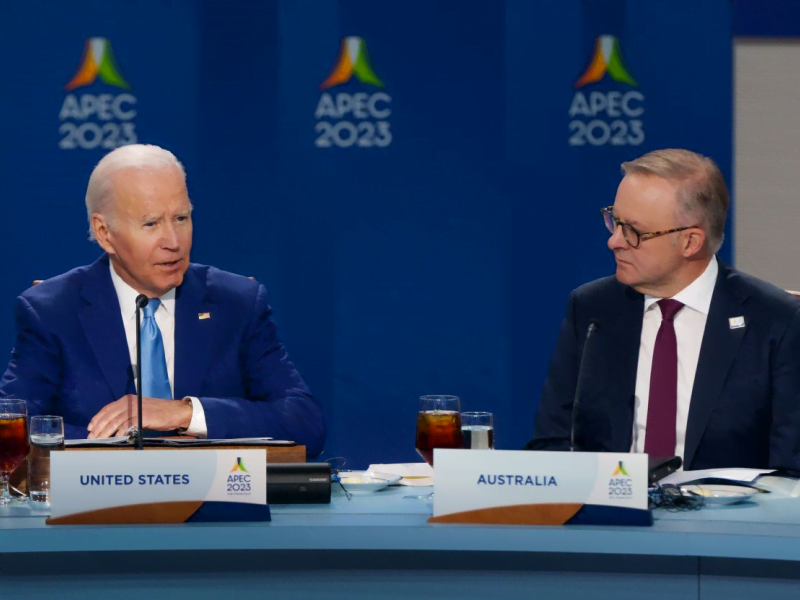Australia on Friday joined Indo-Pacific Economic Framework partners in endorsing the acceleration of research and commercialisation of clean energy and climate technologies, as other agreements on regional trade stalled.
Prime Minister Anthony Albanese finalised the endorsement with other leaders of the Indo-Pacific Economic Framework (IPEF), a group of 13 nations that account for around 40 per cent of global GDP and were brought together by the Biden Administration last year.
Agreements on supply chains and anti-corruption have been negotiated and were also endorsed at the meeting in San Francisco, but a planned trade deal for the nations could not be reached.

Negotiations on the US-led IPEF began a year ago to boost international cooperation and economic integration in the region across key areas. Australia joins 13 other countries in the IPEF, the United States of America, Brunei, Fiji, India, Indonesia, Japan, South Korea, Malaysia, New Zealand, The Philippines, Singapore, Thailand, and Vietnam.
The Albanese government committed $25 million to the IPEF and supporting its member nations in the May Budget.
“Australia is investing in IPEF to accelerate trade diversification and deepen economic regional engagement,” the Prime Minister said following Friday’s meetings, held alongside a three-day Asia-Pacific Economic Cooperation summit in San Francisco.
“IPEF demonstrates inclusive economic cooperation and what can be achieved when regional partners work together for the common good.”
The final text of the Clean Economy Agreement endorsed by the nations on Friday will include efforts to cooperate on accelerating research, development, commercialisation, and deployment of “a diverse set of clean energy and climate friendly technologies”, according to a joint leaders’ statement.
The Clean Economy Agreement will also “facilitate cross-border business activities through collaboration on infrastructure, technologies, and mutually recognised standards, methodologies, and certifications”.
Under the IPEF Clean Economy Agreement, the partners will aim to increase the flow of investment into climate-related infrastructure and technologies, including the formation of public-private partnerships.
Although negotiations have concluded on the IPEF Clean Economy Agreement, further domestic consultation and legal reviews will be undertaken to prepare the final text before it is formerly signed and ratified by each partner.
Earlier this week, Trade Minister Don Farrell signed the IPEF Supply Chain Agreement on behalf of Australia. It aims to help IPEF nations prepare for future supply chain shocks and be brought into force in early 2024.
Negotiations on the IPEF Fair Economy Agreement to combat corruption also concluded successfully but similar agreement on trade could not be reached for trade.
Some IPEF nations reportedly resisted improving labor and environmental standards, and ways to enforcement compliance.
The first annual IPEF Clean Economy Investor Forum will take place in Singapore in the first half of 2024.
Singapore and Australia signed the world’s first Green Economy Agreement, nested in their existing free trade agreement, in October 2022. It includes a $20 million collaborative innovation grants program.
The IPEF agreement will also facilitate the establishment of Cooperative Work Programs (CWP) “to prioritise their focus and resources towards a common goal”, the joint leaders’ statement said.
The first CWP was announced in May and will focus on hydrogen, although a “detailed framework for cooperation” is still being developed. It intends to support the deployment of renewable and low-carbon hydrogen and its derivatives.
Other focus areas being considered for CWPs are “blue carbon, sustainable finance, mainstreaming of green jobs, embedded emissions accounting, methane abatement, biofuels, e-waste solutions, clean electricity, carbon markets, and sustainable aviation fuels”.
The IPEF negotiations coincide with the Albanese government’s deepening engagement with South East Asia, which was outlined in Australia’s Southeast Asia Economic Strategy to 2040 released in September.
Do you know more? Contact James Riley via Email.

